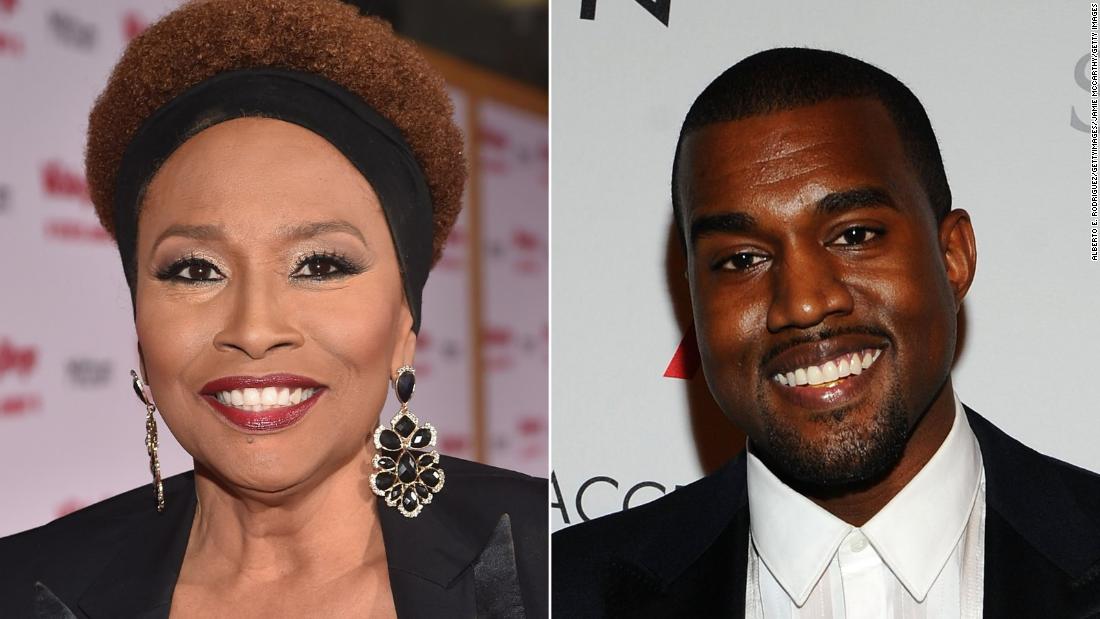
"I just feel so sorry for him," Lewis said as she wept.
Last week, West was the subject of both scorn and concern because of a trip to the White House where he shared thoughts on prison reform and an alternate universe for more than ten minutes during an unusual Oval Office photo op with President Donald Trump.
West, who has said he's been diagnosed with bipolar disorder and referenced his diagnosis on his latest album "Ye," calling it his "superpower," seemed to walk back the possibility he was mentally ill during his White House remarks.
Either way, Lewis, 61, empathizes with West.
The "Black-ish" star was first diagnosed with bipolar disorder in the 1990s and wrote about her struggles with mental illness in her memoir "The Mother of Black Hollywood."
If anyone understands how tricky it can be to navigate fame and being black in Hollywood, while dealing with a mental health struggle, it's Lewis.
According to the actress, that includes being in denial about the seriousness of bipolar disorder.
Lewis said she recognizes some of West's more controversial moments as possible symptoms.
"Part of the disorder is not wanting to tame the mania," Lewis told CNN. "The high is so high and it feels great, but it's dangerous. It's so dangerous."
Lewis said members of West's camp recently approached her about meeting with him to talk about their shared experiences.
"They are going to try to get me in a room with him when he gets back from Uganda," she said. "And all I can tell everyone is that I will do my best."
CNN has reached out to West's reps for comment.
He is currently in Uganda finishing up work on a forthcoming album.
Lewis told CNN Tuesday that while she doesn't know much about West's career, she's worried for him and recognizes how much influence he has, especially with his young fans.
She said she watched some portions of West's recent visit to the White House.
"Of course I have my opinion about [West] going there and being out of control," Lewis said. "I mean very little can shock us today with this administration, but it was cruel."
An advocate for civil rights and mental health care reform, Lewis has been an outspoken critic of Trump.
She said she understands the anger that's been directed toward West for his support of Trump, but believes it won't help the hip-hop star.
"We need more compassion," Lewis said. "You cannot reach [those who are bipolar] by meeting them with rage. Trust me, they've got more rage than you."
Instead, she said, more must be done to bring mental illness into the spotlight.
"I cannot say enough how dangerous this disease is," Lewis said. "And it is a disease. People need to start treating it like a disease like they do cancer, not as something to point at and laugh."
Lewis also had strong words for some of those in West's camp.
"You've got to stop thinking about your paycheck," she said. "Stop thinking about your paycheck, because if you don't, he won't be around."
"I was diagnosed with bipolar disorder," West told Trump last week. "I was connected with a neuropsychologist that worked with athletes in the NBA and the NFL. He said that I actually wasn't bipolar, I had sleep deprivation, which could cause dementia 10 to 20 years from now where I wouldn't even remember my son's name."
Lewis said she sought help managing her disorder, in part, because she was aware of how much she could do to advocate for mental health.
She has fought to feel well, which is what Lewis hopes for West.
"What makes me powerful is I have a smile on my face," Lewis said. "That's what makes me feel that I am worthy to do this work, because I'm a happy person and I am unafraid."
No comments:
Post a Comment